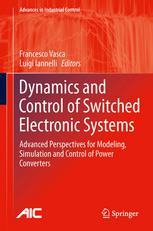

Most ebook files are in PDF format, so you can easily read them using various software such as Foxit Reader or directly on the Google Chrome browser.
Some ebook files are released by publishers in other formats such as .awz, .mobi, .epub, .fb2, etc. You may need to install specific software to read these formats on mobile/PC, such as Calibre.
Please read the tutorial at this link: https://ebookbell.com/faq
We offer FREE conversion to the popular formats you request; however, this may take some time. Therefore, right after payment, please email us, and we will try to provide the service as quickly as possible.
For some exceptional file formats or broken links (if any), please refrain from opening any disputes. Instead, email us first, and we will try to assist within a maximum of 6 hours.
EbookBell Team

4.7
26 reviewsThe increased efficiency and quality constraints imposed on electrical energy systems have inspired a renewed research interest in the study of formal approaches to the analysis and control of power electronics converters. Switched systems represent a useful framework for modeling these converters and the peculiarities of their operating conditions and control goals justify the specific classification of “switched electronic systems”. Indeed, idealized switched models of power converters introduce problems not commonly encountered when analyzing generic switched models or non-switched electrical networks. In that sense the analysis of switched electronic systems represents a source for new ideas and benchmarks for switched and hybrid systems generally. Dynamics and Control of Switched Electronic Systems draws on the expertise of an international group of expert contributors to give an overview of recent advances in the modeling, simulation and control of switched electronic systems. The reader is provided with a well-organized source of references and a mathematically-based report of the state of the art in analysis and design techniques for switched power converters. Intuitive language, realistic illustrative examples and numerical simulations help the reader to come to grips with the rigorous presentation of many promising directions of research such as: converter topologies and modulation techniques; continuous-time, discrete-time and hybrid models; modern control strategies for power converters; and challenges in numerical simulation. The guidance and information imparted in this text will be appreciated by engineers, and applied mathematicians working on system and circuit theory, control systems development, and electronic and energy conversion systems design.